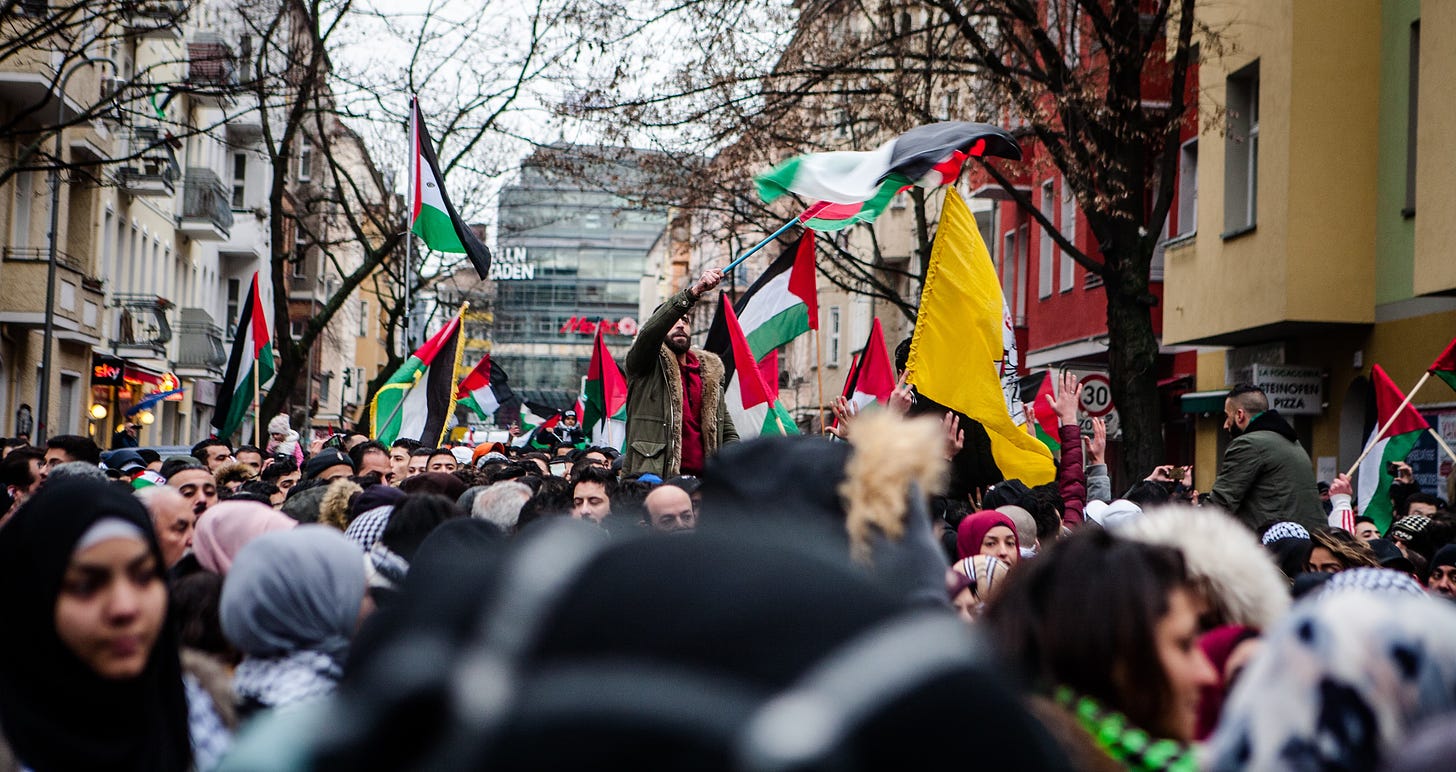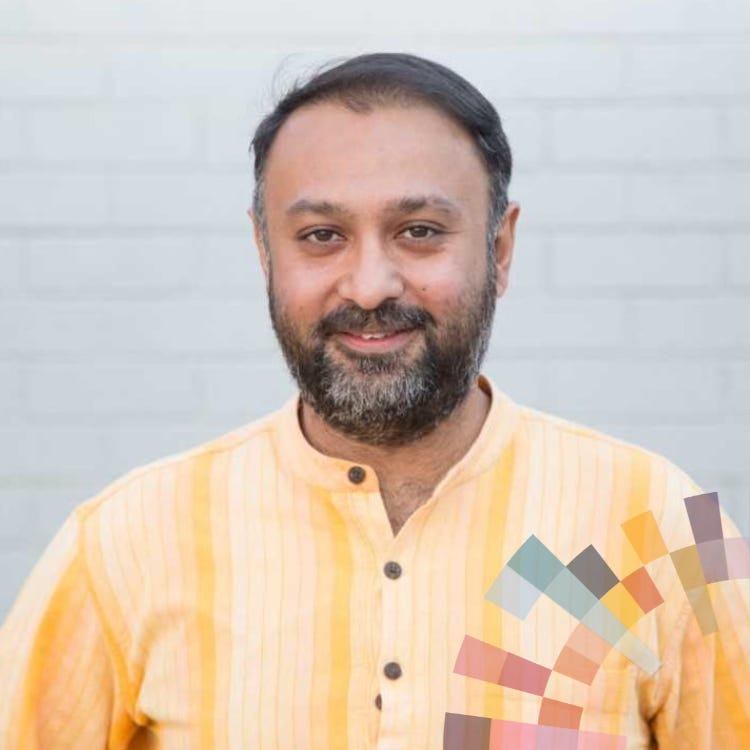To strengthen global solidarity we must protect and expand civic space
Civic space is key to overcoming the current cascade of crises, with history showing that civil society movements can usher in significant transformations, even in a short period of time.
By Mandeep Tiwana, Chief Officer – Evidence and Engagement, CIVICUS
The world faces a confluence of crises that are threatening to roll back decades of progress on rights, justice and equality. In several regions, armed forces are violating the laws of war with impunity, indiscriminately attacking civilians and torturing prisoners. Polluting industries are causing environmental destruction. Fewer than a hundred billionaires own more wealth than half of humanity. Corrupt autocrats are undermining the legitimate aspirations of young people and future generations by clinging to power through repression and divisive politics. The rights of women and LGBTQI+ people are under attack from powerful anti-rights groups.
In this scenario, it’s vital that concerned citizens and justice-oriented civil society organisations can act. History shows us that resolute protest movements and creative voluntary efforts can usher in significant transformations, even within a short period of time, as recently evidenced in Bangladesh. But success is more likely when civil society has the space to operate and act – known as civic space.
Simply put, civic space means the right to speak out, organise and take action. Civic space is predicated on the fundamental freedoms of peaceful assembly, association and expression that are enshrined in the constitutions of almost every country and are part of customary international law.
But civic space isn’t being respected. More than 85% of the world’s population live in highly constrained civic space environments according to the CIVICUS Monitor, a participatory civil society research collaboration that tracks the health of civic space in every country. Fewer than 40 countries have adequately enabling civic space conditions in line with international norms.
For more than 30% of the world’s population, the situation is so bad that even the slightest public criticism of those who hold power can get someone thrown into prison for a long time, physically attacked or forced into exile.
Civic space also means online space. Although technological advancements in the online sphere have aided the exercise of civic freedoms and enabled the rapid spread of global solidarity across borders, repressive regimes are increasingly using censorship, disinformation, internet shutdowns and illicit surveillance to weaken civic space.
All of this is undermining the actions and global solidarity needed to achieve the universal Sustainable Development Goals (SDGs). The UN’s 2024 SDG progress report, while recognising critical data gaps, laments that just 17% of targets are on track. Almost two-thirds of targets have seen only marginal progress, stagnation or regression since they were adopted in 2015 with much fanfare by world leaders.
Civil society shows its value daily. As we speak, it is offering vital responses to some of the world’s gravest problems. It is providing life-saving humanitarian aid, leading reconstruction efforts, collecting evidence of human rights abuses and urging the international community to act to end impunity. These are just a few of the ways civil society is advancing global solidarity, especially with oppressed people.
Citizen journalists are providing crucial firsthand information about Israel’s atrocities against civilians, helping build international momentum for accountability and an end to the carnage in the Occupied Palestinian Territories. In Ukraine, voluntary initiatives are a huge contributor to resilience, with activists supporting people displaced by Russia’s invasion and helping root out corruption from supply chains. Sudanese youth groups are delivering humanitarian aid in the worst-hit conflict zones and offering solutions to restore democratic civilian rule.
Even as regressive forces are gaining political power through the ballot box in some countries, civil society mobilisations ahead of elections have brought positive results for rights and justice. In Guatemala, a new party born from mass anti-corruption protests led to the inauguration of a president untainted by discredited institutional politics. When economic and political elites tried to scuttle the outcome, Indigenous communities led a widespread mobilisation to defend democracy. In Poland, a unity government pledging to restore civic freedoms came to power after eight years of right-wing nationalist rule that undermined sexual and reproductive freedoms. Women’s groups were mobilised in large numbers ahead of the elections, offering new potential for civil society to partner in retrieving democratic values and respecting human rights.
Civil society lawsuits have led to the decriminalisation of same-sex relations in Mauritius, striking down colonial era legislation. In Estonia, the Parliament legislated in favour of marriage equality following a decades-long struggle by human rights groups. Similar positive changes are being won in countries as diverse as Dominica, Namibia and Nepal.
With global temperatures on track to rise by close to three degrees on preindustrial levels by the end of the century, climate activists are working in all regions of the world to build public opinion against unsustainable patterns of consumption and production and expose the malevolent power of the fossil fuel industry. International solidarity movements like Fridays for Future are urging decision makers to act to avert catastrophic tipping points.
In Belgium, Switzerland and the USA, among other countries, courts recently intervened to hold states and companies to account over climate commitments. People’s mobilisations are also pressuring institutions such as universities to divest from fossil fuel investments. At the global level, civil society forced the COP28 climate summit to acknowledge the need to cut fossil fuel emissions, unbelievably for the first time.
Despite – and because of – their notable achievements, civil society activists and organisations across the world are facing a fiery backlash. Documentation by groups such as Front Line Defenders shows that numerous human rights defenders continue to lose their lives because of their work and beliefs. Many within our orbit at the CIVICUS alliance are being subjected to arbitrary imprisonment.
Fearful autocrats in places as diverse as Venezuela and Zimbabwe have attacked protesters and critics as part of their strategy to stay in power. Many governments are using foreign agents or foreign contributions laws to prevent civil society organisations that expose high-level corruption and rights violations from receiving vital funds from credible international sources. Georgia and Kyrgyzstan are among the governments that have recently introduced such discriminatory laws. These funding restrictions stand in stark contrast to government policies on private sector foreign investment.
Despite the many constraints, success stories, including those mentioned above, demonstrate that global solidarity across civil society is still alive and well. A youthful generation increasingly connected by online activism is emerging to lead today’s impressive intersectional civic movements, demanding progress on contemporary scourges such as economic inequality, gender-based violence and climate change. But they need to be supported.
States must take their responsibilities seriously by creating safe and enabling environments for civil society groups to operate freely, starting with repealing laws and policies that interfere with the exercise of civic freedoms. They must encourage other states to follow suit. Multilateral institutions need to enhance their focus on accountability and respect for international norms in relation to civic freedoms and civil society participation. The private sector too must align its policies with international human rights standards. Funders and supporters of civil society need to mainstream civic space considerations. To overcome the current cascade of crises threatening people and our planet we have no choice but to invest in civic space.
This essay was originally published in the Global Solidarity Report 2024 to highlight the importance of civic space in building global identities and a sense of solidarity among the global public in the face of growing shared challenges in our world.
Mandeep Tiwana is chief of evidence and engagement plus representative to the UN headquarters at global civil society alliance, CIVICUS. Since joining CIVICUS in 2008, Mandeep has engaged in global efforts to advance civic space and civil society participation. He has written extensively on the intersection between civil society, sustainable development and international affairs. Previously, Mandeep advised the New Delhi Delegation of the International Committee of the Red Cross. He has also worked with the Commonwealth Human Rights Initiative and the Punjab State Human Rights Commission, as well as on projects related to governance and gender justice at the grassroots level in India.





